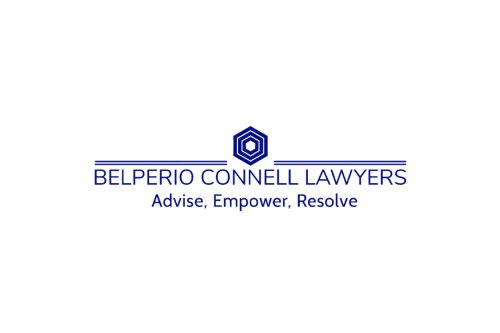Best Estate Planning Lawyers in Adelaide
Share your needs with us, get contacted by law firms.
Free. Takes 2 min.
List of the best lawyers in Adelaide, Australia
About Estate Planning Law in Adelaide, Australia
Estate planning in Adelaide, Australia, is the process of organizing your financial and personal affairs to ensure your wishes are respected and your family is cared for after your passing. This includes the preparation of legal documents such as wills, trusts, enduring powers of attorney, and advance care directives. The goal is to provide clear instructions on how your assets should be distributed and to appoint trusted individuals to make decisions on your behalf if you become unable to do so. Proper estate planning can help minimize taxes, reduce conflicts among beneficiaries, and provide peace of mind for both you and your loved ones.
Why You May Need a Lawyer
There are several situations where you may require the assistance of a lawyer for estate planning in Adelaide:
- Creating or updating a will to ensure it reflects your current wishes and circumstances.
- Establishing a trust to manage and protect assets for children, dependents, or charitable purposes.
- Setting up enduring powers of attorney and advance care directives for management of your affairs if you lose capacity.
- Providing for blended families or addressing complex family dynamics.
- Minimizing taxes and legal fees associated with estate administration.
- Navigating disputes over estate distribution and challenging or defending the validity of a will.
Local Laws Overview
Adelaide, like the rest of South Australia, follows specific regulations and legal frameworks for estate planning. The Wills Act 1936 governs the creation and execution of wills, while the Administration and Probate Act 1919 outlines procedures for administering estates. Enduring powers of attorney and advance care directives are regulated under the Powers of Attorney and Agency Act 1984 and the Advance Care Directives Act 2013, respectively. Understanding these legalities is crucial to ensure that your estate plan is valid and effective. A lawyer can help interpret and apply these laws in the context of your personal situation.
Frequently Asked Questions
What happens if I die without a will in Adelaide?
Without a will, your estate will be distributed according to the intestacy rules in South Australia, which may not reflect your personal wishes. These rules prioritize immediate family members and may not consider special circumstances.
How often should I review my estate plan?
It is advisable to review your estate plan every few years or whenever there is a significant change in your life, such as marriage, divorce, the birth of a child, or a significant change in financial circumstances.
Can I make my own will without a lawyer?
While you can write a will on your own, using a lawyer ensures that the will is legally sound and reduces the risk of challenges to its validity. Errors in a self-prepared will can lead to unintended consequences and conflicts.
What is a testamentary trust?
A testamentary trust is a trust established by a will that comes into effect upon your death. It can provide asset protection and tax advantages for beneficiaries, and is often used for minor children or vulnerable beneficiaries.
Is it necessary to appoint a guardian for my children in my will?
Yes, if you have minor children, appointing a guardian in your will ensures that your wishes regarding their care are considered by the court in the event of your passing.
What is the role of an executor?
An executor is responsible for managing your estate according to your will's instructions. This includes paying debts, distributing assets to beneficiaries, and handling any legal requirements during the probate process.
How can I minimize taxes on my estate?
A lawyer can advise on various strategies such as gifting assets during your lifetime, setting up trusts, and leveraging superannuation benefits to minimize taxes for your estate and beneficiaries.
What is the difference between an enduring power of attorney and an advance care directive?
An enduring power of attorney appoints someone to manage your financial affairs, while an advance care directive allows you to express your health care preferences and appoint someone to make medical decisions on your behalf.
Can a will be contested?
Yes, wills can be contested on various grounds, such as undue influence, lack of capacity, or inadequate provision for a family member. Legal advice is often necessary in these situations.
How can I ensure my estate plan complies with South Australian laws?
Consulting an experienced estate planning lawyer is the best way to ensure your estate plan complies with local laws and accurately reflects your wishes.
Additional Resources
Here are some resources that can be helpful for someone in need of estate planning advice in Adelaide:
- Legal Services Commission of South Australia - Provides free legal information and advice.
- South Australian Law Society - Offers a directory of solicitors specializing in estate law.
- Advance Care Directive - Information and forms are available from the Department for Health and Wellbeing.
Next Steps
If you need legal assistance in estate planning, consider the following steps:
- Identify your estate planning goals and gather relevant personal and financial information.
- Book a consultation with a qualified estate planning lawyer in Adelaide to discuss your needs and the services they provide.
- Work with your lawyer to create or update your estate planning documents, ensuring they align with your intentions and comply with South Australian laws.
- Regularly review and adjust your estate plan as personal or legislative changes occur.
Lawzana helps you find the best lawyers and law firms in Adelaide through a curated and pre-screened list of qualified legal professionals. Our platform offers rankings and detailed profiles of attorneys and law firms, allowing you to compare based on practice areas, including Estate Planning, experience, and client feedback.
Each profile includes a description of the firm's areas of practice, client reviews, team members and partners, year of establishment, spoken languages, office locations, contact information, social media presence, and any published articles or resources. Most firms on our platform speak English and are experienced in both local and international legal matters.
Get a quote from top-rated law firms in Adelaide, Australia — quickly, securely, and without unnecessary hassle.
Disclaimer:
The information provided on this page is for general informational purposes only and does not constitute legal advice. While we strive to ensure the accuracy and relevance of the content, legal information may change over time, and interpretations of the law can vary. You should always consult with a qualified legal professional for advice specific to your situation.
We disclaim all liability for actions taken or not taken based on the content of this page. If you believe any information is incorrect or outdated, please contact us, and we will review and update it where appropriate.

















